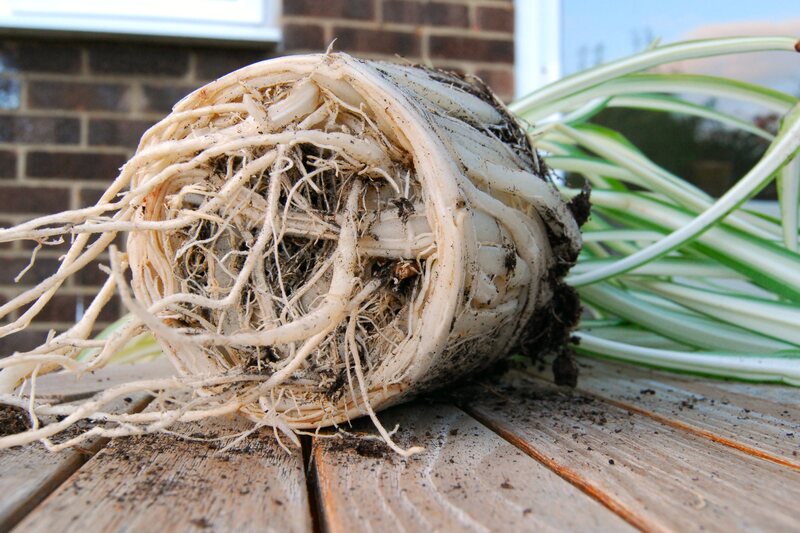3 Game-Changing Tips to Dominate Weed Control
Posted on 28/05/2025
3 Game-Changing Tips to Dominate Weed Control
Are you tired of constantly battling stubborn weeds in your garden, lawn, or farmland? Does it seem as though every weed you pull is replaced by two more? Transform your weed management strategies with our expert guide. Below, you'll find three revolutionary tips that will help you dominate weed control once and for all! With these game-changing tactics, you can enjoy vibrantly healthy vegetation while keeping unsightly and invasive weeds at bay.
Introduction: The Persistent Challenge of Weed Management
Weed control is a fundamental aspect of successful gardening, landscaping, and agriculture. Weeds not only compete for nutrients, sunlight, and water but can also introduce diseases, harbor pests, and diminish the aesthetic and market value of your plants. If you're searching for ways to achieve lasting weed management results, you are not alone. Many gardeners and growers continually look for proven weed control solutions that are both effective and sustainable.
In this comprehensive article, you'll discover three transformative tips that will help you dominate weed control and create a thriving, weed-free environment. Whether you're a home gardener, a lawn enthusiast, or a commercial farmer, these insights will elevate your results and streamline your efforts.

1. Harness the Power of Mulch for Superior Weed Prevention
Why Mulching Works Wonders (and How to Do It Right!)
Mulching is often considered one of the simplest yet most powerful weed control techniques available. By applying a thick layer of organic or inorganic mulch over your soil, you can suppress existing weeds and prevent new ones from emerging. Mulch acts as a physical barrier, blocking sunlight that weed seeds need to germinate and grow.
Benefits of Using Mulch for Weed Management:
- Reduces weed seed germination by denying light to seeds
- Retains moisture for your desired plants, reducing overall water needs
- Improves soil health with organic mulches as they decompose
- Enhances garden aesthetics with a clean, uniform look
- Speeds up cleanup and provides insulation in extreme temperatures
Types of Mulch for Game-Changing Weed Suppression
- Bark and Wood Chips: Ideal for trees, shrubs, and perennial beds
- Straw and Grass Clippings: Perfect for vegetable gardens (ensure they are weed seed-free)
- Compost: Enriches soil while providing weed blockage
- Landscape Fabric: Offers a tough, long-term barrier for landscaped areas
- Gravel or Stone: Suitable for pathways and xeriscaped areas
Pro Tips for Application:
- Apply a layer at least 2-4 inches thick for best weed suppression results
- Ensure mulch doesn't touch plant stems to prevent rot and disease
- Replenish organic mulch annually as it decomposes, keeping it effective
By prioritizing mulching in your integrated weed management plan, you can enjoy fewer weeds and healthier plants with minimal effort.
2. Master Weed Identification and Timely Removal
Know Your Enemy: The Key to Effective Weed Domination
One of the most game-changing weed management tips is to understand exactly which weeds you're up against. Not all weeds are created equal. Some are annuals that die after one season, while others are persistent perennials with deep, resilient root systems.
Why Accurate Weed Identification Matters
- Tailor your control method (some weeds respond best to pulling, others to herbicide or mulching)
- Level up your weed control timing (for example, removal before seeding saves future headaches)
- Prevent spread of invasive or harmful species before they establish a foothold
How to Identify and Prioritize Weed Removal
- Observe growth habits -- rosettes, vines, grasses, or broadleaves?
- Note root types -- taproot, fibrous, or creeping rhizomes?
- Research local weed species -- consult extension offices or use plant ID apps for accuracy
- Prioritize aggressive or seeding weeds for immediate removal
Dominating Weeds: Strategic Removal Techniques
- Pull weeds when the soil is moist for easier root removal and less breakage
- Use the right tools (hoes, weed pullers, hand trowels) to minimize soil disruption
- Remove weeds before they flower or set seed: this can drastically reduce the next generation
- Be vigilant in early spring and late summer, when many weeds are most actively growing
Consistent, targeted weed identification and removal is your secret weapon for long-term weed suppression. Don't let weeds outsmart you--know them, and outmaneuver them with timely, decisive action!
3. Apply a Smart Integrated Weed Control Strategy
The Future of Weed Management: Combining Multiple Approaches
Sometimes, the most effective path to weed domination is to combine several methods in a strategic, integrated plan. Integrated Weed Management (IWM) isn't just a buzzword--it's a proven approach that brings together cultural, mechanical, chemical, and biological controls to keep weeds in check and preserve the sustainability of your land.
Benefits of Integrated Weed Management for Lasting Weed Control
- Reduces reliance on herbicides, protecting pollinators and soil health
- Minimizes weed resistance by deploying diverse control tactics
- Adapts to changing weed populations and environmental conditions
- Promotes healthy, resilient plants that naturally compete with weeds
Key Elements of an Integrated Weed Management Plan:
- Cultural Controls: Rotate crops or plant dense ground covers to outcompete weeds
- Mechanical Controls: Use regular tilling, hoeing, mowing, or hand weeding
- Chemical Controls: Apply pre-emergent or post-emergent herbicides judiciously and as a last resort
- Biological Controls: Encourage natural weed predators, or use selective grazing where appropriate
How to Create Your Own Weed Domination Blueprint
- Assess your weed challenges: Identify primary species and trouble spots
- Set realistic goals: Total eradication is often impossible; focus on minimizing impact
- Combine 2-3 complementary strategies: (e.g., mulch + timely hand-pulling + cover crops)
- Monitor results and adjust annually: track which combinations suppress weeds most effectively in your conditions
Integrated weed control is about working smarter, not harder. Properly combining these techniques can make your land virtually weed-proof, protecting your landscape investment and yielding healthier, more beautiful plants.
Bonus Pro Tips: Dominate Weed Control Like a Pro
- Inspect and clean garden tools regularly -- avoid spreading weed seeds between beds or fields
- Stay consistent with weeding routines -- "little and often" beats letting weeds gain ground
- Monitor after rain or irrigation -- weeds germinate quickly in moist soil
- Opt for weed-free compost and mulches to prevent accidental introductions
- Fill bare spots with desired plants or ground covers; nature abhors a vacuum
Remember: The ultimate secret to weed domination lies in persistence, observation, and varied tactics.

Conclusion: Take Control and Eliminate Weeds for Good
The fight against weeds need not be a losing battle. By adopting these three game-changing strategies--strategic mulching, expert weed identification and timely removal, and the power duo of integrated weed management--you can achieve lasting weed control success in any growing environment.
Whether you're a seasoned gardener, a weekend warrior, or a commercial operator, dominating weed control is achievable with knowledge, vigilance, and a willingness to act proactively. Give these methods a try and watch as your garden, lawn, or fields become healthy, productive, and weed-free for years to come!
Now that you're armed with these actionable tips, it's time to put them into practice. Dominate weed management, reclaim your outdoor spaces, and enjoy the beauty and bounty of a controlled, healthy landscape!
Frequently Asked Questions About Weed Control
- What is the best time to control weeds?
The best time is early in the season, before weeds have a chance to flower and set seed. Regular monitoring and removal throughout the year will prevent infestations. - Are natural weed control methods effective?
Yes, when used consistently! Mulching, hand weeding, and using ground covers can drastically reduce weed populations without the environmental risks of chemicals. - Can I control weeds without herbicides?
Absolutely--though integrating several techniques (mechanical, cultural, biological) is key for best results. Chemicals should be a last resort when other options aren't feasible. - How do I prevent weeds from coming back?
Stay vigilant: remove weeds before they set seed, keep soil covered, and don't let bare spots linger. Persistence and proactive management are essential!
Ready to take action? Start implementing these weed domination strategies today! Share your experiences, tips, or weed control questions in the comments below.

